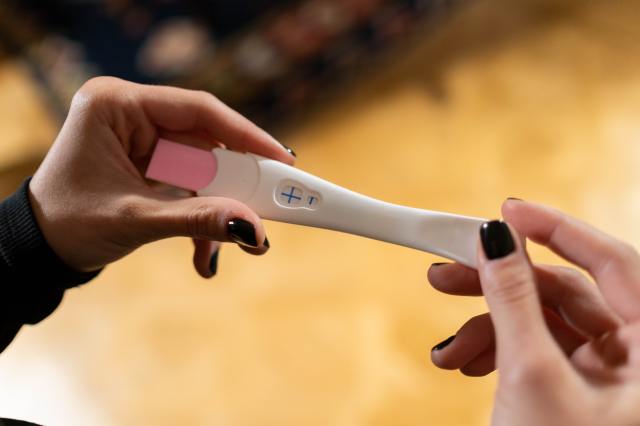From viral TikTok and Instagram videos to well-meaning tips from friends and family, there’s no shortage of information—and unwanted advice—about how to get pregnant. While the kind words may be delivered with the best intentions, many myths and misinformation about conception continue to circulate and it can be difficult to separate fact from fiction.
CCRM Fertility expert, Dr. Stephanie Dahl , is breaking down five common myths and misconceptions about getting pregnant and what the science actually shows us:
Pregnancy Myth #1
Certain Positions Can Increase Your Odds of Pregnancy
Sperm are excellent swimmers; they can swim up toward a waiting egg no matter what position you’re in. In fact, only seconds after ejaculation, sperm are already in the cervical canal. There’s no evidence that indicates sex position matters. This goes for keeping your legs up in the air after intercourse. While there’s no harm in doing it, sperm will head to the right place regardless.
Pregnancy Myth #2
You’re More Likely to Get Pregnant If You Orgasm during Sex
You might have heard that having an orgasm helps to draw sperm into your uterus as it contracts. However, studies have shown this isn’t the case and there’s no link between orgasm and pregnancy success. Since sperm can hang around in the fallopian tubes for several days, an orgasm does not impact them.
Pregnancy Myth #3
Daily Sex Will Increase Your Chances of Getting Pregnant
For some couples, having sex every day when you’re trying to conceive can quickly turn to a point of contention in your relationship and start to feel like a chore. Instead, your best chance of getting pregnant is during your fertile window—the day the egg is released from the ovary (ovulation) and approximately five days beforehand. So, to take the stress out, try to just have pregnancy-focused sex every other day during your ovulation window.
Pregnancy Myth #4
Cough Syrup Can Help You Conceive
Guaifenesin, the ingredient used to improve chest congestion, works by thinning mucous and is present in certain over-the-counter (OTC) medications. Because of this, people have this notion that by taking Mucinex and Robitussin, it can thin out their cervical mucous, making it easier for sperm to travel to the egg. Unfortunately, there’s no reliable evidence to support this theory. The only data referencing the link between guaifenesin and conceiving is from a flawed study published in 1982.
Pregnancy Myth #5
If You Wait Too Long, You’ll Have to Do IVF
While fertility typically starts to decline in your 30s, that doesn’t automatically mean everyone over the age of 30 will have to undergo in vitro fertilization (IVF). In fact, many people can—and do—get pregnant without fertility treatments. Those who need fertility support might take medications, such as Clomid, to increase their chances of conceiving or they might try intrauterine insemination (IUI). By age 44, getting pregnant with your own eggs is unlikely, in which case, donor eggs with IVF may be necessary.
Understanding your menstrual cycle and having sex during your fertile days are two of the most reliable ways to achieve pregnancy success. If you are under 35 and have been trying to conceive without success for a year, or you are 35+ and have been trying for six months, we recommend reaching out to a reproductive endocrinologist. Women over 40 should seek help after three months of trying to conceive without success, and women with underlying medical issues such as a history of cancer, women with gynecologic problems including irregular menstrual cycles, and women who are interested in donor sperm should seek help right away.
Feature image: Cottonbro from Pexels
This post originally appeared on CCRM Blog.
